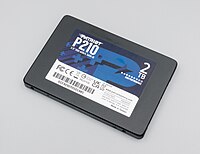
A triple collocation-based 2D soil moisture merging methodology considering spatial and temporal non-stationary errors
Sign Up to like & getrecommendations! Published in 2021 at "Remote Sensing of Environment"
DOI: 10.1016/j.rse.2021.112509
Abstract: Abstract Random error in remotely sensed (RS) and modeled soil moisture (SM) products is typically assumed to be statistically stationary for the purpose of SM merging applications. In reality, such error is often non-stationary, which… read more here.
Keywords: non stationary; methodology; spatial temporal; triple collocation ... See more keywords

A Binned Triple Collocation for Estimating Regime-Dependent Uncertainties of Precipitation
Sign Up to like & getrecommendations! Published in 2022 at "IEEE Geoscience and Remote Sensing Letters"
DOI: 10.1109/lgrs.2022.3162703
Abstract: Triple collocation (TC)-based methods have become popular to estimate the uncertainty of many geophysical variables retrieved from satellite observations. The true advantage of these methods is that no ground-based truth is required and they can… read more here.
Keywords: dependent uncertainties; regime dependent; triple collocation; error ... See more keywords

Using Triple Collocation Observations to Estimate Satellite Measurement Noise
Sign Up to like & getrecommendations! Published in 2022 at "IEEE Transactions on Geoscience and Remote Sensing"
DOI: 10.1109/tgrs.2021.3060781
Abstract: Knowing how much measurement noise is in a signal is critical for evaluating the overall performance of a satellite observation. We developed a triple collocation observation (TCO) algorithm for estimating measurement noise by collocation comparing… read more here.
Keywords: tco algorithm; noise; measurement noise; triple collocation ... See more keywords